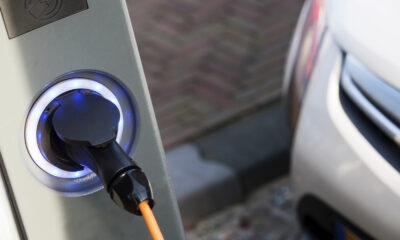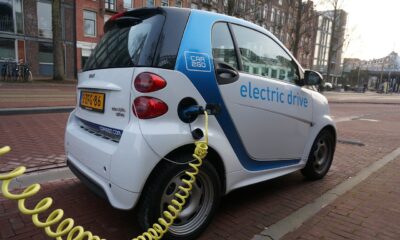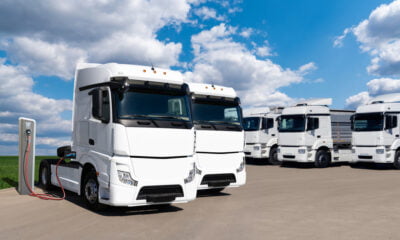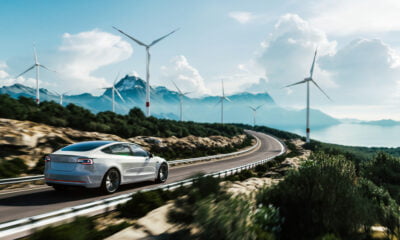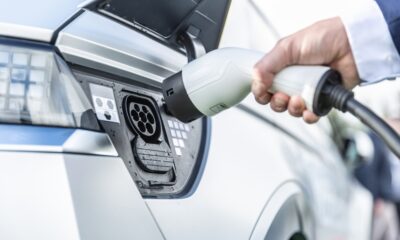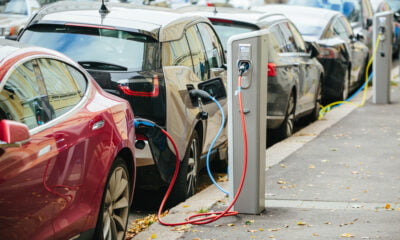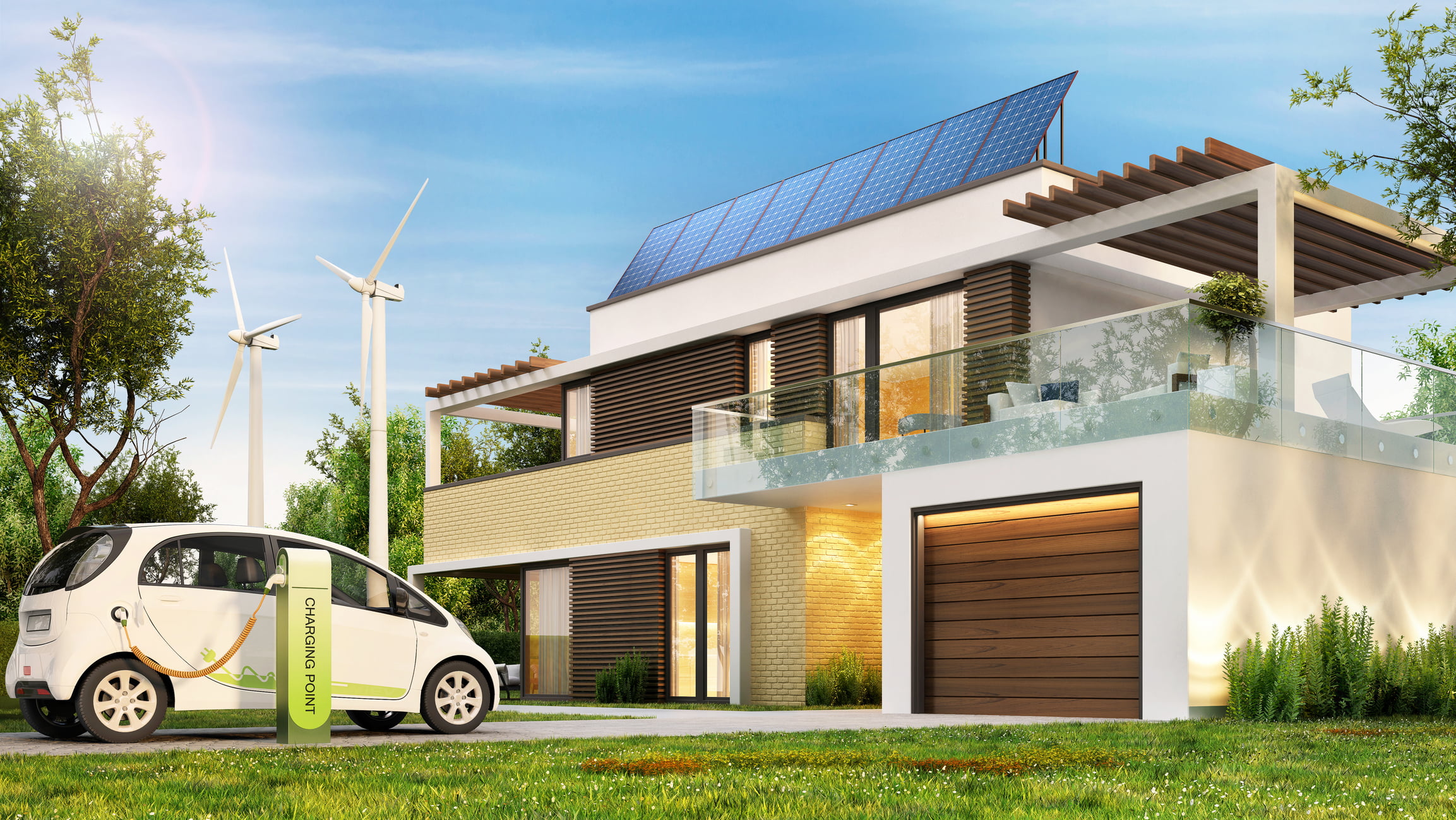
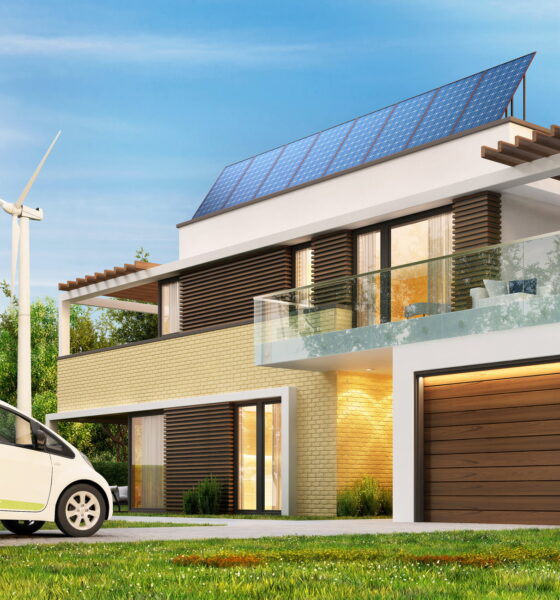
Energy
Is It The Right Time To Switch To An Electric Vehicle?
From eco-friendly carpets to environmentally conscious paints, the world is rushing towards sustainability and environment-friendly products. The vehicle industry is no exception to this, and electric vehicles (EVs) are becoming increasingly popular.
In the past year alone, electric vehicle sales have increased drastically. Year-over-yearelectric vehicle sales increased nearly 69% in February.
But is it the right time to switch to an EV?
Let’s look at some reasons that suggest switching to an EV makes complete sense.
5 reasons why you should switch to an EV
There are several compelling reasons to switch to an EV, including:
1. Environmental friendliness
This is the number one reason why you trade petrol for electric with Grays. Electric vehicles produce zero emissions, so they are much better for the environment than petrol or diesel cars.
In fact, EVs are so environmentally friendly that they are often eligible for government incentives and tax breaks.
Don’t believe us? Read the next point.
2. Government incentives
It’s true! Many governments offer incentives and tax breaks to encourage people to switch to EVs. For example, the Norwegian government offers the following benefits to electric vehicle owners:
- No extra taxes on the purchase of the car
- Free parking spots for EVs
- Toll discounts
- Income tax benefits
These incentives can significantly reduce the cost of buying and running an EV!
3. Cost savings
Electric vehicles offer cost savings in a number of ways.
First, electricity is cheaper than petrol or diesel, so you’ll save money on fuel costs by switching to an EV.
Secondly, EV engines have fewer oils and moving parts than traditional engines, so they require less maintenance and are cheaper to service.
Just keep your batteries charged, do some basic maintenance checks, and you’d be good to go!
4. Enhanced performance
Electric vehicles use less resources than gas-powered cars but produce more power and energy. Yes, EVs have instant torque, helping them accelerate faster than petrol or diesel cars.
How does it happen? Here’s a simple explanation.
In fuel-powered cars, power flows through the transmission and the drivetrain (a group of components that drive the wheels) to make the car move. This process causes some power to be lost.
Electric vehicles, on the other hand, employ a rather direct and more efficient approach. They send power directly to the wheels. This allows them to produce more torque, accelerate faster, and perform better — all without wasting energy or power.
Besides, EVs tend to have better handling due to their design. If you’ve noticed, electric vehicles have a lower center of gravity because of their massive batteries on the floor. The car’s weight keeps them stable and offers better handling at higher speeds.
5. A unique experience
A good electric car is fun to drive! The smooth acceleration, silent engine, and instantaneous torque make for a unique and enjoyable driving experience.
Not to mention, the futuristic design of many EVs is sure to turn heads when you’re driving down the street.
So, these are some of the reasons that make EVs a great choice. If you’ve considered all the factors and are sure that an EV is the right choice for you, then go for it!
But, before you head out to the market, let’s look at some potential cons there might be to buying an EV.
Are there any disadvantages to switching to an EV?
There are a few disadvantages to electric vehicles that are worth mentioning.
First, the initial cost of buying an EV can be high. This is because the battery and other components are expensive.
However, over time, the cost of ownership will go down as the price of batteries and other components decreases.
Second, the range of EVs can be limited compared to traditional petrol or diesel cars. This means you need to plan your trips carefully to make sure you don’t run out of power.
Third, the charging infrastructure for EVs is still being developed. This means that you might not have as many options for charging your car when you’re on the go.
Fourth, electric cars produce zero emissions, which is great for the environment. However, the electricity used to power EVs often comes from coal-fired power plants, which can produce emissions.
Overall, electric vehicles are a great choice if you’re looking for a more sustainable and environmentally-friendly option. However, they’re not perfect and there are some things you need to consider before making the switch.
We understand that this might be a lot of information to absorb. To make things easier, let’s discuss 5 simple questions you should ask yourself before switching to an EV.
5 questions to help you decide on an EV
Ask yourselves these questions to decide whether an electric vehicle will suit your lifestyle or not.
1. What is your budget?
This is the most important factor to consider because electric vehicles can be more expensive to buy than traditional petrol or diesel cars.
2. What is the range of the car?
The range is the maximum distance an EV can travel on a single charge.
This is an important consideration because you need to ensure the car can meet your needs in terms of distance. This includes considering your daily commutes as well as weekly or monthly long trips, if you make any.
3. Does its battery have a long life?
An EV’s battery is a critical component (and an expensive one too). So, you need to make sure the battery will last for many years and won’t need to be frequently replaced.
Read reviews about the company’s overall reputation and battery life to see whether it’s a worthwhile investment or not.
4. Are there enough charging spots around you?
This is a valid concern for many people since EVs are not that common. After all, you can’t just stop anywhere to charge your car like you would with a petrol or diesel car.
However, there are an increasing number of charging spots popping up everywhere, so this shouldn’t be a major concern.
Homeowners can also consider the option of having an EV charging station installed right at home. After speaking with a Fairfield EV home charger installation expert, we learned that a Level 1, a base level charger, can cost up to $300 to install, whereas a Level 2 charger can cost up to $1,200 to install.
While these figures may seem a little pricey, having an EV charger installed in your home will likely save you money in the long run. It will also make life a lot easier, as your car can charge overnight, and you can avoid a lot of wasted time at the local charging station.
5. How much will its insurance cost you?
Electric car insurances are usually more expensive than those for traditional cars.
This is because they’re often seen as a higher risk by insurers. However, this doesn’t mean you won’t be able to find a good deal on insurance.
Do your research and compare quotes from different providers to find the best deal.
Electric Vehicles Are Becoming More Popular
There’s never been a better time to switch to an electric car. Fuel costs are increasing every day, and carbon emissions are ruining the environment.
Still, it’s not a decision to be taken lightly.
Consider all the factors involved and make sure it’s the right decision for you before making the switch.


 Features11 months ago
Features11 months agoEco-Friendly Cryptocurrencies: Sustainable Investment Choices

 Energy11 months ago
Energy11 months agoThe Growing Role of Solar Panels in Ireland’s Energy Future

 Energy10 months ago
Energy10 months agoGrowth of Solar Power in Dublin: A Sustainable Revolution

 Energy10 months ago
Energy10 months agoRenewable Energy Adoption Can Combat Climate Change
